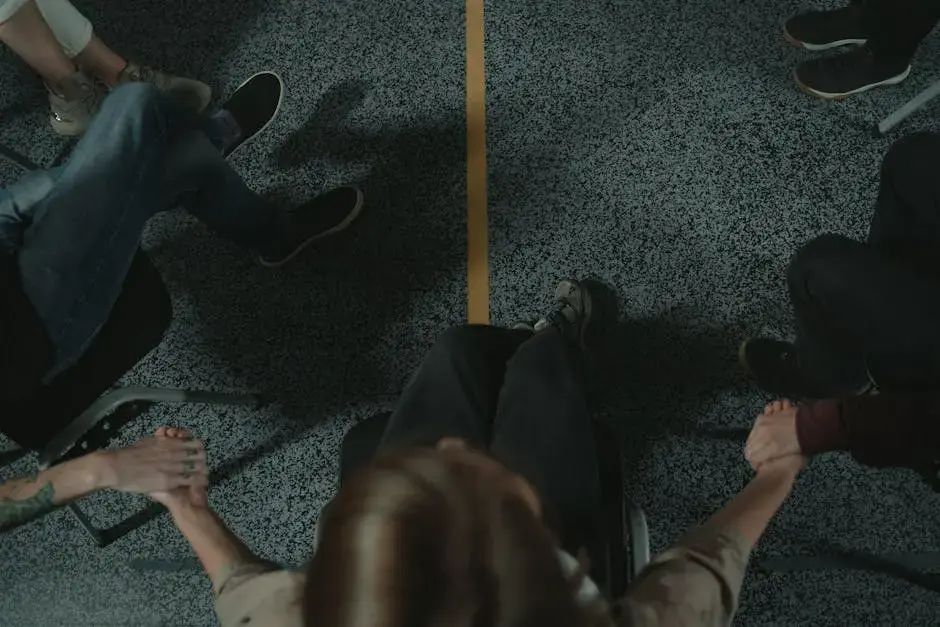12 Common Myths About Couples Therapy Debunked
- Karrie Stafford

- Oct 8, 2024
- 5 min read
Couples therapy is often shrouded in misconceptions that can prevent individuals from seeking help when they most need it. In this article, we will explore some of the most common myths about couples therapy and provide clarity on the truths behind them. By debunking these myths, we aim to encourage more couples to consider therapy as a positive step in their relationship journey.

1. Therapy is Only for Couples in Crisis
One of the biggest misconceptions about couples therapy is that it is only meant for couples who are facing severe challenges. This notion can deter individuals from seeking support when they merely want to strengthen their bond. The truth is that therapy is beneficial for couples at all stages of their relationship, not just during crises. Regular check-ins with a therapist can provide tools for better communication and deeper understanding, fostering a healthier dynamic. Even the happiest couples can find value in therapy, as it can help them navigate life changes and enhance their relationship's resilience.
Moreover, approaching therapy while things are good allows couples to work proactively on their relationship. It helps them address any small issues before they escalate into major problems. Therapy is like a tune-up for a car—it's better to maintain it regularly than to wait until it breaks down.
2. Counseling is Just Blame Game
Another prevalent belief is that couples therapy is simply a venue for blame. Many fear that pointing out their partner's faults will lead to conflict instead of resolution. Contrary to this belief, effective therapy focuses on understanding behaviors and emotions, not assigning blame. Skilled therapists guide couples through a constructive dialogue where both partners' feelings and perspectives are heard and validated.
In fact, one of the primary goals of therapy is to foster an atmosphere of collaboration. Instead of finger-pointing, couples learn to express their needs and frustrations in a respectful manner. This collaborative approach encourages accountability on both sides, ultimately leading to healing and growth. Couples often leave sessions with a sense of relief, knowing they can communicate effectively without fear.
3. Therapists Only Tell You What to Do
Many individuals assume that therapists will simply provide a list of instructions to follow. However, this is a significant misconception about couples therapy. Rather than dictating terms and solutions, therapists act as facilitators who empower couples to find their own way.
Therapists help couples explore their emotions, understand their relational patterns, and identify areas for improvement. This empowerment encourages partners to take ownership of their relationship while building the skills necessary to make positive changes. It's about guiding couples to discover solutions that work for them, rather than imposing a blanket approach. As couples learn through this process, they often experience a newfound sense of confidence and capabilities in addressing their issues.
4. Couples Therapy Means You Are Failing
A widespread belief is that seeking couples therapy signifies a failing relationship. This viewpoint is not only flawed but also detrimental, as it promotes a stigma surrounding therapy. In reality, asking for help reflects a commitment to growth and a desire to improve the relationship.
Many successful couples who actively pursue therapy emphasize its role in their ongoing development. Seeking therapy demonstrates that both partners value their relationship enough to invest time and effort into making it better. Instead of viewing therapy as an admission of defeat, it should be embraced as a profound strength—a proactive decision to nurture the relationship and forge a deeper connection.
5. All Therapists Are the Same
The perception that all therapists are interchangeable can deter couples from exploring this vital resource. However, just like any profession, therapists come with diverse styles, specialties, and approaches. It is crucial to find a therapist whose methods resonate with both partners.
Some therapists adopt a more structured approach, while others may emphasize open dialogue. Couples should feel empowered to research potential therapists, ask questions, and even attend initial consultations to gauge compatibility. By doing so, couples can ensure they are more likely to have a productive and supportive therapy experience tailored to their unique needs.
6. You Have to Share Everything with the Therapist
A common fear for couples considering therapy is the belief that they must lay all their thoughts and feelings bare in front of a stranger. While sharing honesty is essential, it does not mean divulging every detail is necessary for a successful therapy outcome.
Couples have the autonomy to share what they feel comfortable with, gradually opening up as trust in the therapist grows. The process is meant to unfold at a pace that feels safe for both partners, allowing them to address sensitive topics only when they are ready. This patient, respectful environment fosters growth without overwhelming the individuals involved.
7. Therapy is Only About Talking
Some people believe therapy is solely about talking, leading to a misconception that it lacks tangible results. However, effective couples therapy incorporates a variety of tools and techniques to enhance communication and resolve conflicts.
Therapists might employ role-playing exercises, communication tools, or homework assignments to engage couples actively. These interactive methods invite partners to practice new skills in real life, making the learning experience dynamic and impactful. Through these activities, couples develop a more realistic and actionable understanding of their relationship.
8. Therapists Can Fix Your Relationship
It's a common myth that therapists possess the magical ability to fix relationships. The truth is much more grounded—they can guide couples through the process but cannot do the work for them. Change requires the active participation of both partners.
Therapists provide tools, insights, and frameworks, but couples must be willing to implement these strategies in their everyday lives. Each partner plays a crucial role in fostering change, enhancing understanding, and ultimately, rejuvenating their relationship. Rather than presenting therapy as a quick fix, recognize it as a collaborative journey where both partners share responsibility for their growth.
9. Only One Partner Needs to Want Therapy
Many individuals believe that only one partner's willingness to enter therapy is sufficient for it to be effective. Unfortunately, this belief overlooks the importance of both partners' engagement in the process. Couples therapy is a shared commitment that requires both individuals to actively participate and invest in their relationship.
When both partners are dedicated to the process, they create an environment conducive to growth and change. If one partner is reluctant, it can lead to an imbalance where progress is stunted. Therefore, discussing feelings and concerns about therapy together is essential, moving forward as a united front for true transformation.
10. All Couples Should Be in Therapy
The idea that all couples need therapy can be misleading. While therapy can be immensely beneficial, it's not a requirement for everyone. Each couple is unique, and the choice to seek help depends on individual circumstances.
Some couples thrive on open communication and enjoy a healthy relationship without the need for professional intervention. It's essential to evaluate your relationship and determine what works best for you. Therapy should be a choice based on individual and relational needs, not a one-size-fits-all mandate.
11. Therapy is Too Expensive
Some individuals argue that couples therapy is prohibitively expensive. While it's true that costs can vary, this myth overlooks other essential factors. Many therapists offer sliding scale fees or pro bono services to accommodate couples of all financial backgrounds.
Additionally, investing in therapy can save couples money in the long run. By addressing issues early, couples may prevent the accumulation of deeper problems that could lead to separation or divorce. Understanding the value of therapy as an investment rather than an expense is crucial in reshaping this narrative!
12. Looking for Help is a Sign of Weakness
The idea that seeking help in relationships denotes weakness is one of the most destructive myths surrounding therapy. On the contrary, looking for help requires immense bravery and vulnerability. It takes courage to acknowledge when something isn't working and to take proactive steps toward improvement.
In fact, embracing therapy shows a dedication to oneself and the relationship. Rather than succumbing to fear of judgement, couples should celebrate their decision to seek support. It is an empowering step that reflects a deep commitment to nurturing their bond and fostering personal growth.




Comments